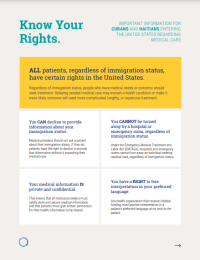Do you field questions from newcomers who speak Haitian Creole? The Settle In team can help! Settle In responds to direct messages—both through text and voice—on topics including job search, public benefits eligibility, community resources, and more, within one business day. Haitian Creole and French have joined Dari, Pashto, Ukrainian, Russian, Spanish, and English as…










